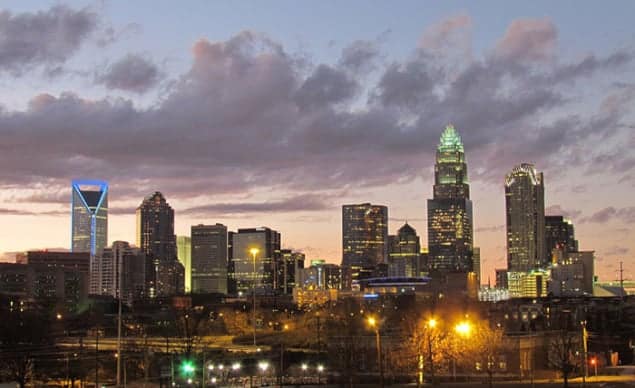
The American Physical Society (APS) has relocated the 2018 annual meeting of the Division of Atomic, Molecular and Optical Physics (DAMOP) over concerns about a new state law that discriminates against members of the lesbian, gay, bisexual and transgender (LGBT) community. The conference, which was due to take place in Charlotte, North Carolina, will now take place in Fort Lauderdale, Florida, in late May or early June of that year.
The relocation is due to the introduction of the Public Facilities Privacy & Security Act – also known as House Bill 2 (HB2) – in North Carolina. An aspect of that bill, which was passed in March, requires people to use public bathrooms that correspond to the gender on their birth certificate. The requirement puts transgender and non-conforming gendered people at risk of arrest if they enter a public bathroom of their gender identity. The law prevents any city in the state from differing from HB2 regarding bathroom rights.
Following the introduction of the law, DAMOP’s 12-member executive committee voted to move the meeting. As the division typically books its meeting three years in advance, it will incur a cancellation fee for withdrawing from the venue. However, that is likely to be small compared with the meeting’s overall total cost.
Member support
DAMOP members overwhelmingly agreed with the decision. “I’m very proud of the APS for making this move and taking a very clear action that shows that the APS values trans physicists,” says Elena Long, a postdoctoral researcher at the University of New Hampshire, who is a member of the APS Committee on LGBT Issues. DAMOP chair Steven Rolston, a quantum physicist at the University of Maryland, says that members are 10:1 in favour of the move, based on feedback he has received.
The APS has recently been working to improve the environment for LGBT+ physicists. In March, the APS committee on LGBT Issues published its LGBT Climate in Physics report – the culmination of two years spent outlining the status of the LGBT community within physics and the barriers its members encounter. It outlined six recommendations to increase inclusion and address the current discriminatory environment, which the APS council has now endorsed. “Physicists should be able to focus on their work, free from having to deal with all forms of harassment and discrimination,” says Long, who is the founder of LGBT+physicists – an online resource for physicists of gender and sexual minorities.



